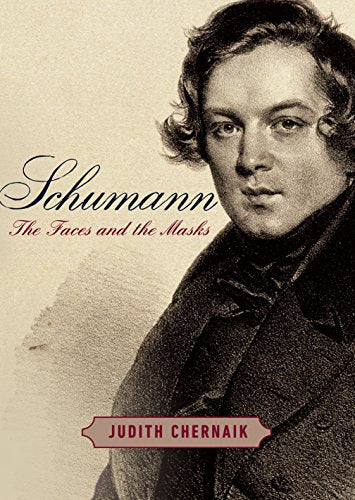
Book Depot - 001-100294
Clearance: Schumann: The Faces and the Masks
Quantity:
Pickup available at Juilliard Store
Usually ready in 4 hours
Clearance: Schumann: The Faces and the Masks
Juilliard Store
Pickup available, usually ready in 4 hours
144 West 66th Street
New York NY 10023
United States
A groundbreaking account of Robert Schumann, a major composer and key figure of Romanticism, whose life and works have been the subject of intense controversy since his early death in a mental asylum.
Schumann: The Faces and the Masks draws us into the milieu of the Romantic movement, which enraptured poets, musicians, painters, and their audiences in the early nineteenth century and beyond, even to the present day. It reveals how Schumann (1810–1856) embodied all the contrasting themes of Romanticism—he was intensely original and imaginative but also worshipped the past; he believed in political, personal, and artistic freedom but insisted on the need for artistic form based on the masters: Bach, Haydn, Mozart, and Beethoven. It details his deep involvement with other composers of his time, such as Chopin and Mendelssohn, Liszt and Brahms, as well as the literary lights of the age—Johann Wolfgang von Goethe, Heinrich Heine, E.T.A. Hoffmann—whose works gave inspiration to his compositions and words to his songs.
Drawing on hitherto unpublished archive material, as well more established sources of journals, letters, and publications, Judith Chernaik provides enthralling new insight into Schumann’s life and his music: his sexual escapades, his fathering of an illegitimate child, the facts behind his courtship of Clara Wieck—already a noted young concert pianist—his passionate marriage to her despite the opposition of her manipulative father, his passionate marriage, and the ways his many crises fed into the dreams and fantasies of his greatest works, turning his tumultuous life into music that speaks directly to the heart.
Schumann: The Faces and the Masks draws us into the milieu of the Romantic movement, which enraptured poets, musicians, painters, and their audiences in the early nineteenth century and beyond, even to the present day. It reveals how Schumann (1810–1856) embodied all the contrasting themes of Romanticism—he was intensely original and imaginative but also worshipped the past; he believed in political, personal, and artistic freedom but insisted on the need for artistic form based on the masters: Bach, Haydn, Mozart, and Beethoven. It details his deep involvement with other composers of his time, such as Chopin and Mendelssohn, Liszt and Brahms, as well as the literary lights of the age—Johann Wolfgang von Goethe, Heinrich Heine, E.T.A. Hoffmann—whose works gave inspiration to his compositions and words to his songs.
Drawing on hitherto unpublished archive material, as well more established sources of journals, letters, and publications, Judith Chernaik provides enthralling new insight into Schumann’s life and his music: his sexual escapades, his fathering of an illegitimate child, the facts behind his courtship of Clara Wieck—already a noted young concert pianist—his passionate marriage to her despite the opposition of her manipulative father, his passionate marriage, and the ways his many crises fed into the dreams and fantasies of his greatest works, turning his tumultuous life into music that speaks directly to the heart.

